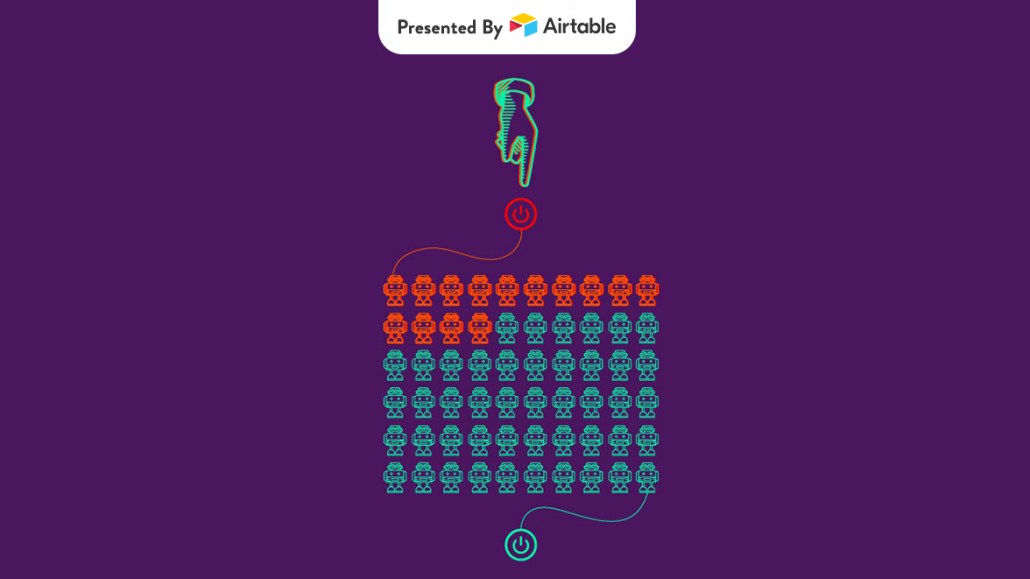Secure your place at the Digiday Publishing Summit in Vail, March 23-25
NYT’s Meredith Kopit Levien: We’ll continue cutting vendors post-GDPR

Digiday covers the latest from marketing and media at the annual Cannes Lions International Festival of Creativity. More from the series →

The New York Times’ top brass and journalists were out in force at the Cannes Lions festival this week to meet with marketing clients and support its ads business. Digiday caught up with Meredith Kopit Levien, evp and chief operating officer of the Times, at the Martinez Hotel to discuss why the General Data Protection Regulation is a positive step, how the title’s podcasting success gave it confidence to push into TV and its plans to market itself more aggressively in Europe. This conversation has been edited and condensed.

Will GDPR complicate international operations and expansion for the Times?
In the short run, GDPR has presented quite a bit of complication. An enormous amount of effort has gone into ensuring we’re compliant. That took a lot of time and energy. In the long run, the general push to do more right by consumers is a very good thing for organizations like the Times who are in the business of trying to scale direct relationships with consumers, and to do so in a way that honors consumer choice and expectations and privacy.
Some US publishers pulled their ads from European sites on May 25. Did you?
Our European ads business is completely compliant. We are taking a much more deliberate approach and showing a mix of advertising in Europe. We are still running advertising in Europe, but not allowing anything that isn’t compliant.
How did that approach affect your digital ad supply chain?
If you think of that original Lumascape, what GDPR is putting in stark relief is much of the middle of that market between marketer and publisher must go away. The idea that there are many companies that took a tax in between the two organizations trying to exchange value — the marketers and publishers — we’re seeing a dramatic reduction in that. Our work to be compliant for GDPR took into account the need to dramatically reduce the number of companies we use, and that’s not a bad thing.
How many ad tech vendors did you cut?
I don’t have the number at hand, but in general, you will see us continue to work with a smaller number of players in the middle. One of the ways we’re advantaged is we already have so many direct relationships with consumers via our subscriptions. We think we will make a bigger, better, higher-quality ad business by scaling direct relationships with consumers. That means the continued reduction of any players in the middle who can’t adhere to all these standards of what we want on our site and the privacy standards of what we want for consumers.
So you’ll have fewer but stronger relationships with ad tech partners?
I’ve long believed that a much smaller number of relationships with partners that can integrate with us on a number of platforms is better. A lot more of our ad ecosystem is tied up with Google than it used to be, as it’s easier for us to do it that way. It [Google] provides services to us today where maybe three or four companies did before. So you’ll see us continue to reduce.
What’s your take on Google’s approach to GDPR?
It is really hard to play in an ecosystem with exceedingly powerful and large counterparties, but it is the reality. Our work is to make the best of it, while minding our own business strategy. We have managed to do that genuinely well with Google. It’s not perfect, but they listen well and are responsive. We’d be putting our heads in the sand if we didn’t attempt to work in the ecosystem we have, trying to run the strategy we believe is the best one.
What’s coming up on the product front?
We just sold the rights to a TV show called “The Weekly,” to FX and Hulu, that will launch early next year. We’ll look at international distribution for it. We weren’t born from TV, but our inspiration and self-confidence to go out and say we’re making a TV news show for next generations — to reinvent TV news — came from our “Daily” podcast. “The Daily” didn’t exist 18 months ago and last year was the No. 1 podcast in the U.S. It has 2 million more listeners every day than the weekday newspaper ever had subscribers. And it has changed the way we think about news. It has put The New York Times into new parts of people’s lives we weren’t in before.
Will you extend that strategy internationally?
We have a huge international footprint that we’ve undermarketed. You’ll see us get a lot more aggressive about international. We have 32 bureaus, but we intend to do much more. We see our market as the whole world.
More in Media

The case for and against publisher content marketplaces
The debate isn’t whether publishers want marketplaces. It’s whether the economics support them.

Urban Outfitters shifts its influencer strategy from reach to participation
Me@UO is Urban Outfitters’ new creator program leverage micro-creators with smaller, engaged communities that are passionate about the brand.

Media Briefing: Without transparency, publishers can’t tell if Google’s Preferred Sources feature benefits them
Six months in, Google’s Preferred Sources promises loyalty-driven visibility, but leaves publishers guessing at the traffic impact.





